On July 22, Jason Rezaian, an American-Iranian Washington Post reporter, was detained in Tehran by Iranian authorities along with his wife, Yeganeh Salehi, and two other people whose names have been kept private.
The reason for the arrests was never publicly announced, and today, more than four months later, everyone but Rezaian has been released.
Salehi was released on bail in October, but any hope that Rezaian would soon join his wife was dashed on Dec. 3 when Human Rights Watch reported that Rezaian has been officially charged (the Post has since corroborated the report). We still don’t know the nature of the charges—only that his detention has been extended until mid-January while the investigation against him continues.
Rezaian’s arrest, which reportedly involved a raid on his home, came as a shock to everyone who knew him. He is a friend to many (including myself) in the press, and the general public. He is the kind of person who will set aside time to talk to anyone who reaches out to him.
A native of California who was born to an Iranian father and American mother, Rezaian’s interest in Iran from an early age ultimately grew into a love affair with the country. He ended up moving there, and even though Iran has long been criticized for its record on press freedom, became the Post’s Bureau Chief in 2012. He has since covered various aspects of the Islamic Republic, from its nuclear program to the effects of the sanctions regime on average Iranians to the growing popularity of American-style burger joints.
Since he was arrested, Rezaian’s family has reserved its calls for his release to only a few outlets, including the Washington Post, and CNN, which featured Rezaian and Salehi in the Iran-focused episode of Anthony Bourdain’s Parts Unknown show. Rezaian and his wife were detained shortly after the show was filmed, and Bourdain has since joined Rezaian’s family in calling for his release. A Facebook page and petition have also been setup for Rezaian.
The appeals for Rezaian’s release by his family (and Bourdain) have been extremely respectful of the Iranian authorities (just watch this video-message by Rezaian’s mother, Mary). This has been the case even though his family says the lawyer they hired to represent Rezaian has not been allowed to see his client (Salehi has visited her husband since she was released) and Jason has at least one health condition that requires consistent care.
Now Rezaian’s family has issued a public statement, which I am publishing in full below. The tone of this statement is considerably stronger than his family’s previous appeals, a likely testament to their growing state of distress.
FAMILY OF WASHINGTON POST REPORTER JASON REZAIAN RESPONDS TO CHARGES AGAINST HIM BY IRANIAN GOVERNMENT
December 7, 2014
Our family is deeply saddened to confirm that, after being held in solitary
confinement without charge for 137 days, Jason Rezaian was charged with
unknown crimes by the government of Iran.In its ongoing disregard of Iran’s own laws, the Iranian judiciary has
continued to deny Jason access to legal representation, denied his request
for bail, and prevented access to review of his case file.This continued disrespect for Iran’s judicial system should be a concern not
only to the international community who are eagerly awaiting normalization
of relations with Iran, but also to all those Iranians who claim that Iran
is a country of laws which should be recognized as such by major world
powers.We urge Iran’s Supreme Leader Ali Khamenei to show the international
community that Iran is indeed a country that respects its laws, and order
the immediate and unconditional release of Jason and Yeganeh and end what
Iran’s own Head of the Judiciary’s Human Rights Council Mohammad Javad
Larijani, recently described as a “fiasco”.
Photo Credit: Courtesy of Mo Davari
]]>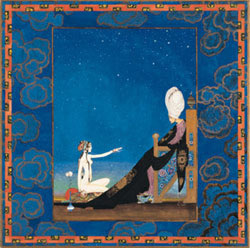 Espero entre indignada y divertida el próximo 8 de marzo, Día Internacional de la Mujer… El anterior me deparó una pasmosa sorpresa. Sobre mi escritorio había una enorme rosa de pétalos amarillos y bordes rojos y una tarjeta dirigida a las mujeres del siglo XXI, en su día.
Espero entre indignada y divertida el próximo 8 de marzo, Día Internacional de la Mujer… El anterior me deparó una pasmosa sorpresa. Sobre mi escritorio había una enorme rosa de pétalos amarillos y bordes rojos y una tarjeta dirigida a las mujeres del siglo XXI, en su día.
“Las mujeres han seducido a los literatos, han vuelto frescos a los piadosos, han empobrecido a los ricos…” “… para ellas se construyen los palacios, se tienden las cortinas, se compran los esclavos y corren las lágrimas…” “para ellas son el almizcle, las joyas y el ámbar, por su causa se reúnen los ejércitos, se construyen los cuarteles, se almacenan las provisiones y se cortan los cuellos…”
El texto es una cita de “Las Mil y Una Noches”, la célebre compilación de cuentos árabes del siglo XI. Y el remitente del supuesto elogio al eterno femenino, Random House Mondadori.
¿Por qué escogieron este texto los encargados de relaciones públicas de Random House Mondadori? Apuesto que les pareció un conjunto de alabanzas y zalamerías exóticas, impactantes y perfumadas.
Pero, ¿cuál es la imagen femenina que describen estas citas? Una creada en el medioevo por el mundo masculino. La mujer era capaz de enloquecer o arruinar al hombre, de hacerlo embarcar en las empresas más locas, audaces y crueles, un ser por el que valía la pena saquear, esclavizar, matar…
Ese ser, casi mítico, funcionaba como justificación literaria y poética de las reglas de juego que regían el mundo masculino de entonces: el dominio a toda costa y la acumulación de territorios y riqueza.
Las mujeres reales de esa época, a las que se dirigían esos dudosos elogios, permanecían, por ejemplo, esclavizadas en un harén.
“Las Mil y Una Noches” es un relato que da a pie a otro: El sultán Shahriar asesina a su esposa cuando descubre que le es infiel y, a partir de entonces, ordena que se le presente cada día una nueva mujer, que pasa con él la noche y al amanecer es ejecutada.
Una locura cruel. Pero con nuestros ojos del siglo XXI podemos verla como lago más: una perfecta muestra de violencia sexista, perpetrada con total alarde de poderío.
Entonces, la joven Sherezade rompe ese círculo de muerte: urde el plan de fascinar al sultán con el relato de un cuento y dejarlo inconcluso justo al amanecer, con la promesa de terminarlo a la noche siguiente. Así logra sobrevivir mil noches y, al final, consigue que el castigo le sea perdonado a ella y a todas las que la hubieran seguido.
Sherezade es un símbolo, como lo es el sultán. Hoy, la elección de la cita elegida por el gigante editorial también tiene significado simbólico.
Random House Mondadori Sociedad Anónima es, según su propia definición, uno de los líderes en edición y distribución de contenidos escritos en lengua española.
Es un emprendimiento de riesgo compartido entre Random House, división editorial de Bertelsmann AG, la mayor empresa internacional de comunicación, comercio electrónico y contenidos interactivos, y Mondadori, editorial que posee un tercio del negocio de libros y revistas en Italia, una de las propiedades del primer ministro italiano Silvio Berlusconi.
Random House es el mayor grupo editorial del mundo.
Desde 2001 forman parte de Random House Mondadori todos estos sellos:
Areté, Beascoa, Caballo de Troya, Debate, DeBolsillo, Collins, Electa, Grijalbo, Lumen, Mondadori, Montena, Plaza & Janés, Rosa dels Vents, Sudamericana.
Distribuye y exporta sus títulos a más de 45 países de América Latina, Asia, Europa y Estados Unidos.
Bertelsmann AG opera en 63 países y da empleo a más de 100.000 personas. Posee empresas de radiodifusión, editoras de revistas y de libros, sellos discográficos, el mayor grupo de distribución de libros y de música, logística, diseño y contenidos multimedia, entre otros negocios.
Literalmente, grupos como Bertelsmann AG tienen el poder de imponer ideas, modelos, contenidos. Decenas de miles de periodistas, escritores y comunicadores trabajan para estas empresas.
Pero su influencia va mucho más allá, porque crean y sostienen cultura y formas de ver, que se reproducen fácilmente en cada sala de redacción, por pequeña que sea. Y en cada calle. Son un posmoderno sultán Shahriar.
¿Qué es lo mínimo que la sociedad de hoy debería exigir a medios tan poderosos? Por lo menos que los contenidos con los que dejan semejante huella cultural sean un reflejo de este mundo, el del siglo XXI, y no uno del siglo XI.
Claro, este mundo no es precisamente un mar de rosas.
Las mujeres siguen siendo objeto de violencia y atropellos, aunque ya quede mal decir que todo se hace en nombre de su belleza. Y la presencia femenina sigue siendo poca y distorsionada en los medios de comunicación.
El 10 de noviembre del año pasado, el Proyecto de Monitoreo Global de Medios llevó a cabo su cuarta investigación para evaluar “cómo ha ido cambiando la representación de género en los medios de comunicación” de distintas regiones del mundo. Los resultados estarán listos a tiempo para la conferencia que las Naciones Unidas celebrarán en marzo, en Nueva York, con motivo de los 15 años de la Cumbre de Beijing.
Algunos resultados del estudio anterior, de 2005, indican que las mujeres eran apenas 21 por ciento de los actores de las noticias (y los hombres el restante 79 por ciento), 17 por ciento de las fuentes expertas y 14 por ciento de las portavoces, pero duplicaban a los hombres entre las fuentes que eran víctimas.
En fin, no necesitamos más sultanes, ni tampoco queremos más Sherezades. Necesitamos estar alerta.
]]>I am moving to Maputo, Mozambique, to work in health reporting. Gender Masala will remain in the IPS Gender Portal with a more collective identity, infused by several IPS writers.
I like the word transitions: it evokes [...]]]>
I am moving to Maputo, Mozambique, to work in health reporting. Gender Masala will remain in the IPS Gender Portal with a more collective identity, infused by several IPS writers.
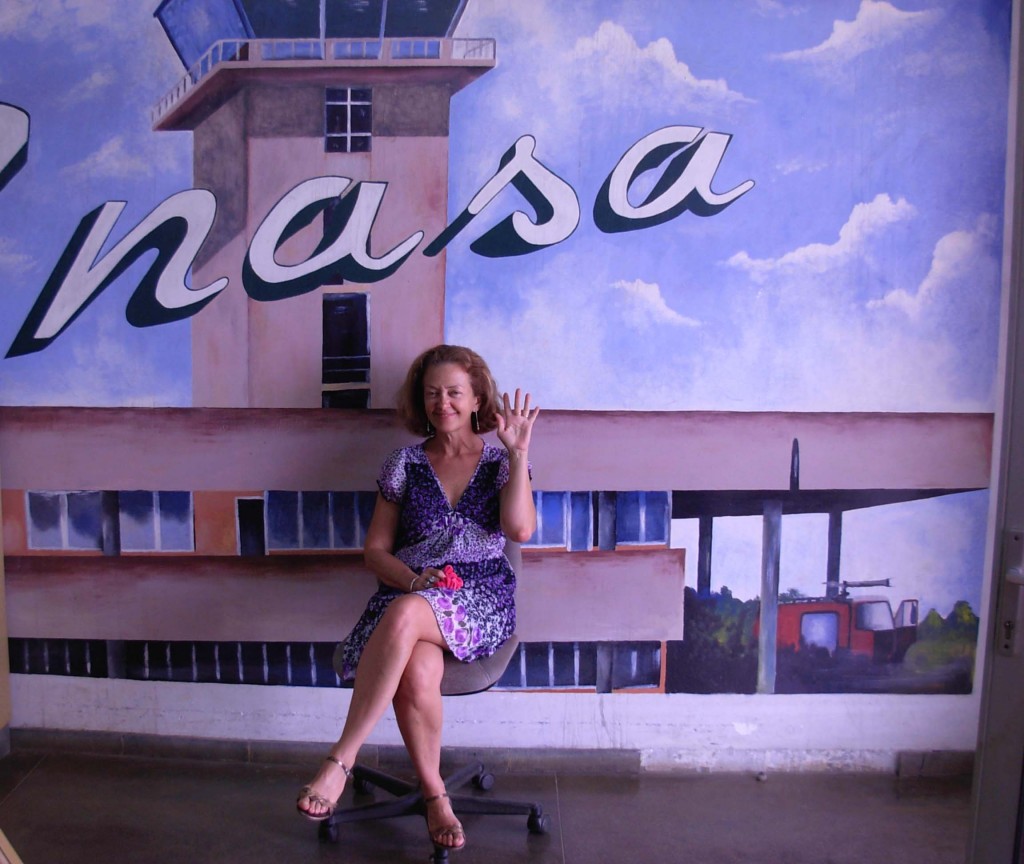
Passenger in transit: "The real voyage of discovery consists not in seeking new landscapes but in having new eyes." Marcel Proust. Pic by Claudio Corallo.
I like the word transitions: it evokes change, birth, adaptation, growth.
This has been an exciting journey of discovery of a new medium. As the philosopher George Santayana wrote: “There is wisdom in turning as often as possible from the familiar to the unfamiliar; it keeps the mind nimble; it kills prejudice, and it fosters humor.”
Over seven months, , the pictures got bigger, the voices varied, my style freer. It was intellectually rewarding to look every week at the rich variety of IPS stories on gender and be inspired by them to write a new blog.
I will miss the weekly postings on gender, although I will continue blogging on health issues in Mozambique here:
http://knight.icfj.org/OurFellows/FromtheFieldFellowBlogs/
I want to thank my fellow bloggers, you, the readers, and, most importantly, IPS, for this opportunity to add a spicy mix to the MDG3 Gender Portal. I enjoyed it immensely and I hope you did too.
Peace in 2010.
]]>“Invitation for a consultancy in conducting a training on enhancing facilitation skills of development practitioners [...]]]>

A collective indigestion of jargon. Photo by Beralpo, Wikimedia Commons
My friend is looking for a job. He finds an ad of the US-based Mercy Corps and calls me for a translation. The ad is in English – sort of – but he can’t figure out what it is about:
“Invitation for a consultancy in conducting a training on enhancing facilitation skills of development practitioners of livelihood enhancement programs.”
What does this text mean exactly, except that we have a collective indigestion of development jargon from NGOs and the UN, from academics and politicians, and that the media is complicit in this masquerading of long words as substance?
Here are some egregious examples from media houses I write for outside Gender Masala (thus, I will not bite the hands that put food and wine on my table by doing a name-and-shame or I will have to apply for the Mercy Corps job myself and, for my sins, spend my days writing about mainstreaming stakeholder engagement through shared learning platforms).
“Unless the ways in which teachers promote knowledge acquisition improve on a system-wide scale, mother tongue education on its own will not make a difference.”
Promote knowledge acquisition? I think that means teaching. Yes, teaching methods must improve countrywide for mother tongue education to work.
If pedagogues speak so cryptically, no wonder teachers can’t teach well in any language.
hHere is one on gender: ”To change these already entrenched values will mean women have to consciously make a paradigm shift in the way they handle themselves.”
How about this one? “XX says that the project aims to highlight good practice in jointly identifying and addressing developmental challenges at local community level between young volunteers working in African and European organisations.”
Excuse my coughs, I have just choked on jargon.
 Photo by Bobby, Wikimedia Commons
Photo by Bobby, Wikimedia Commons
If NGOs and the UN want to (ab)use jargon in their rarified world, so be it.
But we journalists should not parrot meaningless words. We should translate jargon into real and simple language so readers can understand what it means.
* Check this useful list of 200 jargon words banned by the American Association for Local Government.
* Read here a really interesting IP S story about language and gender.
I feel neither more “good” nor more “patient”. I am a hard-headed woman, as always. Attached to life, as ever!
The day when my friend Pigi, my oncologist, told me that I had breast cancer, I cried desperately. The first thing I did was to phone my [...]]]>
I feel neither more “good” nor more “patient”. I am a hard-headed woman, as always. Attached to life, as ever!

Paola Rolletta by Luis Abelard
The day when my friend Pigi, my oncologist, told me that I had breast cancer, I cried desperately. The first thing I did was to phone my partner to tell him this piece of news, of which I had had some premonition. And I understood that premonition really exists.
Curiously, I did not wonder “Why me?” My reaction was: “This cursed disease has hit me too!”
Perhaps some survival instinct made me articulate my feelings in this way, to ease the pain in my heart.
There are more and more of us, women between 40 and 50 years of age, diagnosed with cancer, most of hormonal origin. I must read more about the disease: until now, I have not allowed myself such reading.
First I said that I couldn’t read more about cancer until I finished this calvary of chemotherapy. Now that I finished the eight sessions, I say that I will wait to read until I have the CAT (computer axial tomography) results.
In a nutshell, I don’t want to cram on cancer because I decided to trust my three doctors, the surgeon, the oncologist and the nutritionist, to save me from this darkness.
In darkness
What shocked me most is the darkness you live through while undergoing chemotherapy. It is almost like a mirror lysergic acid experience, but instead of colourful hallucinations, they are black, like anti-matter.
Maybe it is the chemicals shot into my body during six months (eight chemo sessions, 4 FEC and 4 Docetaxel, every 21 days) that makes me see the world, inside and outside, so dark.
The darkness weighs more heavily than the hair loss, the nausea and the vomiting. This metaphysical darkness that totally grabs you is devastating: no words, gestures, musical notes or flowers. For a long time, darkness dominated my thoughts and my soul – an unnatural darkness that does not spring from disease-associated pessimism.
To find strength, I tell myself that mine is a chemical pessimism that – I hope, I trust – will save my life.
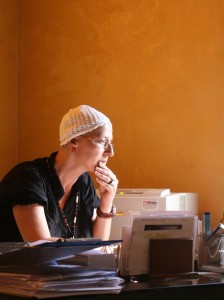
Photo: Sol de Carvalho
And I hope that radiotherapy next month will be less dark!
Feeding nitro-glycerine to my body
Earlier this year, I wanted to quit smoking and went to the naturopath for acupuncture. In her office by the sea in Maputo, Dr. Fernanda examined me and told me, without mincing words, to have a mammogram right away. Because I smoked and took birth control pills for decades, I was literally feeding a cancer with all that poison, that nitro-glycerine, she said. Just like this. Raw and cruel.
I was so frightened I took the first flight back to my home country, Italy. That saved my life! Dr. Fernanda was right, in her cruel way. Even when I did not have any symptoms, even though I had not felt any lump, she was right.
Cancer is a multi-factor disease but breast cancer is, most cases, of hormonal origin. Why these hormones go crazy and make us develop cancer it is not known yet, but that they are to blame, this is known. This knowledge is a great leap forward to cure many cancer patients and to prevent the disease.
Ten years ago I read “Illness as a Metaphor” by Susan Sontag while I was working on a documentary on AIDS in Uganda for Portuguese TV.
Ten years later, I re-read it. I tracked it down in the boxes where I stored my books when I moved to Maputo.
In the meantime, Susan Sontag died of cancer. I remember her, wearing a green dress, in a photo taken by her lover Annie Leibovitz.
Every day I repeat to myself Sontag’s call to realism: cancer can be treated with chemotherapy more efficiently than with diets or psychotherapy. Sontag unpacked beliefs that have fed the popular mythology about cancer up to these days.
Every day I repeat her words in the introduction: illness is the night-side of life, a more onerous citizenship.
The disease that has hit me contains, paradoxically, an element of reassurance: every day I must face a new day, a daily routine. Suffering serves as a mediator between my will to live and all that is threateningly unknown. But the unknown is part of life itself. It is life.
]]>Why today? Because it’s the last of the 16 Days against Violence against Women, arguably the best known global campaign of the women’s movement, and also Human Rights Day.
Today, Sahrawi activist Aminatou Haidar starts her fourth week of [...]]]>

What's in the news on Human Rights Day?
Why today? Because it’s the last of the 16 Days against Violence against Women, arguably the best known global campaign of the women’s movement, and also Human Rights Day.
Today, Sahrawi activist Aminatou Haidar starts her fourth week of hunger strike at Lanzarote airport in the Canary Islands. She is so weak she has to be transported to court by wheelchair or stretcher. Last week, the head of UNHCR called on Spain and Morocco to resolve her issue on humanitarian grounds.
The award-winning Haidar is known as the Sahrawi Gandhi for her non-violent protests for the independence of her desert country, the Western Sahara, ruled by Morocco since 1975.
In November, the Moroccan government unlawfully withdrew her passport and deported her when Haidar returned from receiving the prestigious Civil Courage Prize in New York. In 2008 she received the Robert F. Kennedy Human Rights award.
On the other side of the world, in the Philippines, on 23 November, the eve of 16 Days, 22 women were massacred along with 35 men. The women were raped, sexually mutilated and shot in their private parts. The mass murder was instigated by a local politician-warlord and carried out by his militia. Among the victims were the wife and sister of a rival political candidate and two women lawyers who worked for him.
Believing that the Muslim tradition of respecting women would protect them from clan violence, the group was going to file papers for the candidate, along with a group of journalists. Among the 57 killed were 30 thirty media people, journalists, technicians and drivers. This is the largest single killing of journalists in history.
Earlier in November, Cuban blogger Yoani Sanchez, along with two less well-known bloggers, a woman and a man, were detained and beaten up by authorities in Havana. They were on their way to a peaceful march.
Is this cause for despair? No. These examples of violence unleashed against women in politics and media only reaffirms our commitment to denounce these crimes and seek justice.
The media now has a better tool to do this job. On 25 November, IPS presented its new handbook on reporting on women and violence. User-friendly, with an agile layout, it covers a wide spectrum of issues, from cyberstalking to trafficking, with story examples, discussion points, fact checks and additional resources. Download it here.

Do it now! No time to lose!
Email your support for Aminatou here or at: todosconaminatou@gmail.com
And do whatever you can do to end violence against women and protect human rights defenders wherever you are.
]]>
A Saudi woman journalist escaped punishment last week but her cameraman wasn’t so lucky.
Rozana Al-Yami, 22, was pardoned by Saudi Arabia’s King Abdullah after the court sentenced her to 60 lashes for her work at the talk show Red Line in LBC, a Lebanese satellite TV.
[...]]]>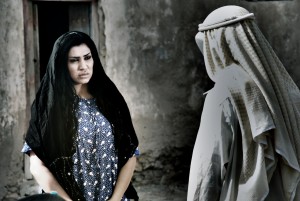
Shall we talk about it?
A Saudi woman journalist escaped punishment last week but her cameraman wasn’t so lucky.
Rozana Al-Yami, 22, was pardoned by Saudi Arabia’s King Abdullah after the court sentenced her to 60 lashes for her work at the talk show Red Line in LBC, a Lebanese satellite TV.
She made international news. He didn’t. No one mentioned that he has to serve a two-month jail term. His name remains anonymous in press reports.
Some would call this positive discrimination in favour of women but to me iit s a general bias. Women have been striving all over the world for equality, not favoritism.
Of course , Al-Yami doesn’t deserve to be punished. Neither does the cameraman nor anyone involved in the TV show that grabbed the hearts of million of Arab viewers but disturbed the conservative image of Saudi Arabia.
Let’s talk about sex
Sex remains a big taboo but the Arab world is opening up its airwaves to the topic. The LBC’s Red Line wasn’t the only TV show that tackles sex but there are few others. Be surprised: sex topics such as pleasure sex and organism that used to be discussed secretly by women during friendly gatherings are now discussed on air through many regional TV Channels.
One of the most popular talk show is Love Tales, by Dr Fawziya Duree, showing every Saturday on a private Kuwaiti Channel. Dr Duree holds a PHD in sex, culture psychology and believes in the need to discuss sex as an ordinary and important matter in life.
Her program started with a new, fresh approach to discussing marital problems and love relationships.
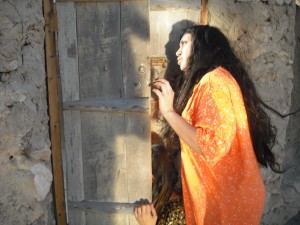
Sex talk: opening the door to freedom.
After gaining huge popularity, she shifted to more daring topics, such as sex during menstruation (a taboo among Muslims), passionate kissing and the anatomically correct description of genital parts.
In each show Dr Duree boldly discusses bold sex-related topic and receives calls from viewers calling for help in their sex-related conflicts. Although those programmes are opposed by hardliners, they are gaining popularity day by day.
Love Tales can be seen in Saudi Arabia. Let’s spare a compassionate thought for the poor cameraman jailed for something he could do freely in other Arab countries.
Images from the movie Anklet Dancer, Bharain 2008. Courtesy of director Ali Al ALi.
]]>The UN has finally decided to stand up for women! A decision to create a new agency for women was taken by the General Assembly on September14.
Our colleague Thalif Deen, IPS bureau chief in New York, was the first and only journalist to report it for the [...]]]>
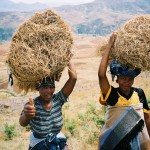
A breakthrough for us as well? M. Sayagues
The UN has finally decided to stand up for women! A decision to create a new agency for women was taken by the General Assembly on September14.
Our colleague Thalif Deen, IPS bureau chief in New York, was the first and only journalist to report it for the first several hours.
But this blog is not to crow about our scoop.
I’m quite excited by the prospect of a new women’s agency with money and political power. No longer will the world’s feminists have to lobby from the outside to put their views on the table. They have now won admission to the high table.
Any one of those bright, articulate, activist women can emerge to lead the agency. The reality is likely to be less rosy. But chances are that, because it’s new, it will be less under the thumb of the old boy network.
You think I’m a romantic? What the hell, there is no harm in dreaming, is there? I like to think that there was no way that the General Assembly could have once again shelved the plan for a new women’s agency.
It’s 14 years since Beijing. All the small and big things that governments were forced to accept around women’s rights (CEDAW, MDG, etc.) made it impossible for any country to block the efforts of myriad initiatives (from small grassroots groups to reforms in government policies even if they started as mere tokenism) and to politicise the cause of gender equality.
I do see great hope in the increasing presence of women in politics – Liberia, Japan, India, wherever you look, even Iran (new ministers) and the Gulf (Saudi Arabia has made a few small concessions to women!).
Of course, there is a backlash too – more violence against women worldwide.
As IPS gender editor, I am sure we will keep track of the new agency as it will be a key player achieving the MDG3 goal – gender equality.
Well, hope springs eternal!
]]>Journalist [...]]]>
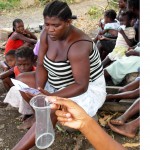
A Femidom demo. Photo: M. Sayagues/Irin
In a contest for irresponsible tourism, taking the last two female condoms at a Botswana border post as a souvenir would run neck-and-neck with littering the Central Kalahari Game Reserve with soda cans. Hey, spare a thought for a sister: a local woman might need them. I mean the condoms, not the soda cans.
Journalist Bridget Hilton-Barber writes, in the South African weekly Mail & Guardian, about the female condom’s popularity among Batswana women. (Femidoms rub the right way, 14 August). Then she plucked the last ones at the border post, as a souvenir, to lie in her office drawer.
Well, their popularity is a very good reason to leave the condoms in the box for someone who wants to use them.
Correction: Someone who needs to use them.
An average of three out of ten pregnant women at public antenatal clinics in Botswana are HIV-positive. This is an improvement over ten years ago, when four or five out of ten pregnant women were HIV-positive. Condoms helped achieve this drop. (Read about AIDS in Botswana here) Comes with a price
Condoms have a cost and female condoms are the most expensive, even when subsidized by donors. A male condom costs US$0,4; a female condom, US$2.50.
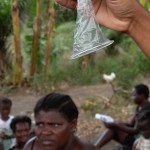
Photo: M. Sayagues/Irin
In March, its sole manufacturer, Female Health Company, announced a cheaper version in synthetic rubber instead of polyurethane that will cost around US$0,60 but is not yet available.
Looks cheap? Remember, many Africans live on less than one dollar a day.
Besides price, supply is a problem. Logistics bottlenecks plague the delivery of goods in Africa, from life-saving antiretrovirals to malaria pills, from sanitary pads to birth control pills, from car spares to school books, from snail mail to email.
There is no difference between a female condom in Botswana, South Africa or Holland, I can assure you. The difference is that a consumer in Holland can buy one or get a free one anytime she wants. In Africa, it ain’t that easy.
So control your grabbing impulse, dear tourist. Have you heard of sustainable fishing and harvesting – or condom plucking? You will be doing a sister a favour by leaving those condoms in the box if you don’t need them.
If you want to see a Femidom, buy one at a drugstore back home.
Responsible tourism is more than eschewing python boots and turtle soup or using the towels at the luxury safari camp more than once.
And tell the tour operator not to allow his Dutch clients to pluck condoms for keepsake either. Would they take the KLM airplane life jackets as souvenirs?
This is SO not rubbing it the right way.
]]>